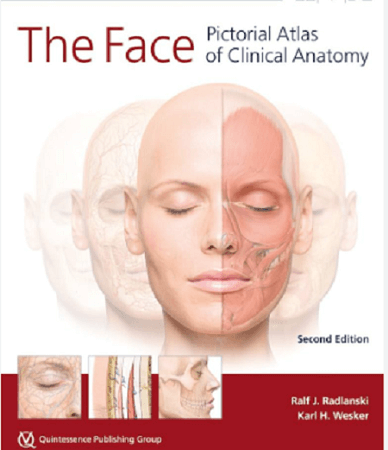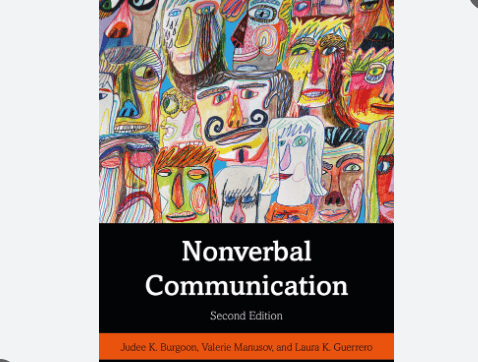Human Resource Management
Career Choices in Human Resources Management.
Human resource management (often abbreviated HRM or HR) is the strategic approach to the effective management of an organization's workers so that they help the organization gain a competitive advantage.
Human resource management activities cover a broad range, from ensuring effective recruitment and retention to engaging in corrective/disciplinary action to handling an employee’s separation from the organization to promoting employee well-being within an organization.
Human resources overall purpose is to ensure that the organization is able to achieve success through people. HR professionals manage the human capital of an organization and focus on implementing policies and processes. They can specialize in recruiting, training, employee-relations or benefits.
Recruiting specialists find and hire top talent. Training and development professionals ensure that employees are trained and have continuous development. This is done through training programs, performance evaluations and reward programs.
Employee relations deal with concerns of employees when policies are broken, such as in cases involving harassment or discrimination. Someone in benefits develops compensation structures, family-leave programs, discounts and other benefits that employees can get. On the other side of the field are Human Resources Generalists or business partners. These human resources professionals could work in all areas or be labor-relations representatives working with unionized employees.
Human Resource Manager’s Job Description & Responsibilities
Human resource managers are responsible for ensuring that the overall administration, coordination, and evaluation of human resources plans and programs are realized. Therefore, their essential job responsibilities include:
- Developing and administering human resources plans and procedures that relate to company personnel
- Planning, organizing, and controlling the activities and actions of the HR department
- Contributing to the development of HR department goals, objectives, and systems.
These Responsibilities Involve Achieving the Following Tasks
- Implementing and revising a company’s compensation program
- Creating and revising job descriptions
- Conducting annual salary surveys
- Developing, analyzing, and updating the company’s salary budget
- Developing, revising, and recommending personnel policies and procedures
- Maintaining and revising the company’s handbook on policies and procedures
- Performing benefits administration
- Maintaining affirmative action programs
- Overseeing recruitment efforts for all personnel, including writing and placing job ads
- Conducting new employee orientations and employee relations counseling
- Overseeing exit interviews
- Maintaining department records and reports
- Participating in administrative staff meetings
- Maintaining company directory and other organizational charts
- Recommending new policies, approaches, and procedures
Although in smaller organizations human resource managers may be responsible for all of the above named duties, these HR professionals in larger organizations may have more specialized duties. In these settings, these specialized managers may be referred to as compensation and benefits managers, training and developing managers, and the like.
As supervisors, human resource managers are responsible for the oversight of all employees in the HR department, which includes performance management of HR employees. For example, they can be tasked with the responsibility to make recommendations for the organization’s leadership based on analyses of worker productivity. Their value is often realized as they identify ways to maximize the value of the organization’s employees and ensure all human resources are being utilized as efficiently as possible.
Every organization wants to attract, motivate, and keep qualified employees and match them to jobs for which they are well-suited. Human resources managers accomplish this aim by directing the administrative functions of human resources departments.
Their work involves overseeing employee relations, securing regulatory compliance, and administering employee-related services such as payroll, training, and benefits. They supervise the department’s specialists and support staff and make sure that tasks are completed accurately and on time.
Human resources managers also consult with top executives regarding the organization’s strategic planning and talent management issues. They identify ways to maximize the value of the organization’s employees and ensure that they are used as efficiently as possible. For example, they might assess worker productivity and recommend changes to the organization’s structure to help the organization meet budgetary goals.
Some human resources managers oversee all aspects of an organization’s human resources department, including the compensation and benefits program and the training and development program. In many large organizations, these programs are directed by specialized managers, such as compensation and benefits managers and training and development managers.
The Following are Examples of Types of Human Resources Managers
- Labor relations directors—also called employee relations managers—oversee employment policies in union and nonunion settings. They draw up, negotiate, and administer labor contracts that cover issues such as grievances, wages, benefits, and union and management practices. They also handle labor complaints between employees and management, and they coordinate grievance procedures.
- Payroll managers supervise the operations of an organization’s payroll department. They ensure that all aspects of payroll are processed correctly and on time. They administer payroll procedures, prepare reports for the accounting department, and resolve any payroll problems or deviations.
- Recruiting managers—sometimes called staffing managers—oversee the recruiting and hiring responsibilities of the human resources department. They often supervise a team of recruiters, and some take on recruiting duties when they try to fill high-level positions. They must develop a recruiting strategy that helps them meet the staffing needs of their organization and compare effectively for the best employees.
- HR Consultant — These days companies are growing increasingly complicated, and human resources departments are no exception. The human resources consultant is an offshoot of the management consultant who charges companies a high hourly rate to impart much-needed services.
Human resources consultants may specialize in a variety of fields including benefits, employee incentives and rewards programs, company culture after mergers and acquisitions, employee motivation, retirement plans, recruiting and even the outsourcing of any of the many functions of an HR department.
This high-level individual assesses a company’s current situation and offers and helps deploy systemic recommendations that will get the company to its desired goal. The HR consultant, meanwhile, gets to choose whom he or she works with, when that work is completed, and what to charge. It is the HR path where freedom meets money.
Top-notch HRM Careers
International Human Resources Professional
The job of the international human resources professional may involve recruiting candidates into global positions, establishing training and development standards across an international organization, implementing benefit plans as national laws allow, as well as overseeing labor relations, employee programs and many more.
This HR career track involves the same kinds of tasks that a national human resources professional might engage in, but with a great variety of cultures, languages and locations thrown into the mix. International HR is ideal field for people who love to travel, speak multiple languages and are adept at engaging successfully with a wide variety of different people who adhere to different customs. Boredom is not the operative term for this unique and exciting human resources career path.
Human Resources Executive (Chief HR Officer or Vice President of Human Resources)
These executive positions require one to devise an HR strategy for the company as well as policies, systems and goals.
Every aspect of a human resources department, beginning with recruiting and moving through contract signings, training and development, benefits, and more run through the Chief HR Officer or, if the company does not have such a position, the Vice President of HR. With 10 – 20 years’ worth of experience and a proven track record of human resources success, the HR executive can have a satisfying and, above all, a well-paying career.
Training & Development Manager
The training & development managers help employees improve their skill sets and careers. They do this by training employees in specially-held classes, workshops, conferences and other kinds of gatherings.
Training and development managers are also sometimes in charge of designing the most effective coursework for employees, given the content that their employer wants to emphasize, while keeping training sessions entertaining and informative. If you like standing up in front of people and helping them learn and improve their lives, this career path might be quite fulfilling for you.
Employee Education Consultant
These consultants do similar tasks as training and development managers — that is, they hold workshops, classes and conferences aimed at increasing employees’ skill sets and knowledge— but without the full-time commitment. Companies hire them on a a contract or retainer basis to help improve their employees’ skills. This means that the companies hiring such consultants are already interested in keeping their employees well-trained and happy.
The consultants work in an accommodating environment and employees are interested in what they have to say. In addition, training and education consultants can set their own hours and choose their clients. If they only want to work six months out of the year, they can. Such freedom makes this job a fantastic choice for anyone who both loves to teach and train and wants independence in their position.
HR Entrepreneur
Be it a headhunting firm, employee placement company, HR consulting firm, or a professional employer organization (PEO), which takes on the role of an outsourced HR department for a company, launching a successful HR company can be a golden ticket in terms of career choices.
HR professionals with an entreneurial bent can set up such a firm, find a stable of clients; and with hard work and tenacity, build their firm into a successful organization. If you like HR and are excellent with people, and have a killer work ethic and high risk tolerance, the entrepreneurial human resources path stands as a potentially lucrative career option. And with more and more companies choosing to outsource their HR functions, this path remains a promising one for years to come.
Executive Recruiter
If you’re good with people and building relationships, a position as an executive recruiter could be one of the most lucrative ways to make friends. Executive recruiters are tasked with finding and filling job openings for senior executives, the so-called C-level executives including CEOs, as well as people in vice president positions.
Executive recruiters generally get paid on retainers or paid in full after they have filled a position, and because companies are so interested in finding good senior talent, these fees can be quite high. This is where the making friends part also comes in. Executive recruiters want to build such solid relationships with companies that when an opening occurs, those companies call them first, at which point they launch their executive search, contracting other contacts in other companies — potential executives to fill that position — and trying to see if they’re interested.
Human Resources IT Specialist
While some HR jobs such as HR manager, haven’t changed too much over the years, the ever-expanding world of HR is adding new niche positions, and HR information technology (IT) specialist is one of them. Anyone with a knack for software or hardware and an interest in human resources can combine their skills to become an HR IT specialist and enjoy the career rewards that come with it, including being sought after and more often than not paid well.
HR IT experts could be software developers, system administrators, IT architects, or have another level of technical expertise that can be applied to a company’s human resources systems, which may include calendars, databases, payroll systems and the like. Although there isn’t necessarily direct interaction with employees, this member of the IT team plays a crucial role in supporting the human resources team, while facilitating the technology that helps a company stay efficient and organized.
What It Takes to Become a Human Resource Manager
Human resource managers possess excellent decision-making, strategic thinking, leadership, interpersonal and ethical conduct skills. Beyond these traits, however, human resource managers must be well-educated in their field of expertise.
Human resource managers typically possess a bachelor’s degree and human resource experience, although many employers prefer their human resource managers to possess a master’s degree in human resource management.
Bachelor’s degrees in human resources may be structured as:
- Bachelor of Science/Bachelor of Arts in Human Resource Management
- Bachelor of Science/Bachelor of Arts in Management with a concentration in HR
- Bachelor of Business Administration (BBA) with a concentration in either of: Human resources, Organizational behavior, Management and leadership, Industrial relations.
As such, popular graduate degrees for human resource managers include:
- Master of Arts/Master of Science in Human Resource Management
- Master of Arts/Master of Science in Management with an HR concentration
- Master of Business Administration (MBA) with a concentration in Human Resource Management/Organizational Leadership
Professional certification for human resource managers is also commonplace with these HR professionals most often possessing one or more of the following designations:
- Society of Human Resource Management (SHRM)
- SHRM-CP (certified professional)
- HR Certification Institute (HRCI)
- Professional in Human Resources (PHR)
- Senior Professional in Human Resources (SPHR)
- Global Professional in Human Resources (GPHR)
- Human Resources Management Professional (HRMP)
- Human Resource Business Professional (HRBP)
- California Certification for PHR and SPHR certified professionals

























